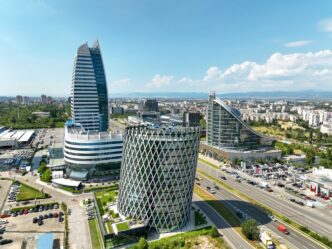Executive Summary
The Story So Far
Why This Matters
Who Thinks What?
Blagomir Kotsev, the jailed mayor of Varna, Bulgaria’s third-largest city, has called on the European Union to increase pressure on Sofia, alleging a decline towards authoritarianism. Kotsev, arrested on July 8 on graft charges he denies, claims his detention is politically motivated, a stance echoed by his liberal anti-corruption party, We Continue the Change, which views the case as evidence of a weaponized judiciary.
Political Motivations and EU Calls for Action
Kotsev’s arrest has triggered nationwide protests and renewed concerns about organized crime’s influence in Bulgaria. Former Prime Minister Nikolai Denkov, from Kotsev’s pro-EU party, has described the situation as a “state of dictatorship.” Valérie Hayer, chair of the Renew group in the European Parliament, has called for EU funds to Bulgaria to be cut, citing the country’s “institutional perversion.”
Speaking from jail, Kotsev told POLITICO that he had been warned of a political attack due to his party’s anti-mafia platform in Varna, a city known for its politically-connected crime and Russian influence. He stated he was threatened with a similar fate to jailed Turkish mayors who oppose President Recep Tayyip Erdoğan.
Bulgarian President Rumen Radev has also expressed skepticism about the country’s rule of law, suggesting it is “increasingly difficult for Europe to be lied to about what is happening in Bulgaria.” He accused the judiciary of selectively pursuing the opposition while overlooking those in power.
Judicial Independence and Public Contracts
Rule of law has been a longstanding concern in Bulgaria, with reformist politicians and investigative journalists describing it as a “captured state” where the judiciary and security apparatus are linked to organized crime. The European Commission has previously noted a “very low” perception of judicial independence in the country.
The reformist opposition, including Kotsev’s party, argues that it is being targeted for its success in regional elections in major cities like Sofia and Varna. These victories have disrupted the established political order, leading to the loss of lucrative public contracts.
The charges against Kotsev relate to public contracts, with catering manager Plamenka Dimitrova accusing him of attempting to extort a 15 percent cut from school and kindergarten meal contracts. Kotsev, however, maintains his innocence, highlighting concerns about arbitrary detention under investigation.
Geopolitical Significance and Allegations of Influence
Varna, a strategically important port for NATO and European security, is also a significant hub of Russian cultural and economic influence. For decades, the city was governed by the GERB party, led by Prime Minister Rosen Zhelyazkov and former premier Boyko Borissov, who remains a key political figure.
Former Prime Minister Kiril Petkov, now a lawmaker with We Continue the Change, asserted that the case against Kotsev is part of a broader campaign orchestrated by Chief Prosecutor Borislav Sarafov. Petkov claims this campaign aims to protect the interests of Borissov and sanctioned oligarch Delyan Peevski, head of the DPS-New Beginnings coalition, which supports the current government.
President Radev has also pointed to Borissov and Peevski in discussions about the rule of law, stating that “democracy in our country is a façade, the government is a decoration for the Peevski-Borisov duo, and justice is selective.” Petkov emphasized the broader implications for Black Sea security, suggesting that “a city without a mayor benefits Putin’s regime.”
Responses and Political Theatrics
Prime Minister Zhelyazkov from GERB has maintained that the country’s independent judiciary should be allowed to operate without interference, stressing the principles of presumption of innocence and judicial independence. The DPS-New Beginnings party has dismissed We Continue the Change as a party of “corrupt and compromised politicians.”
The political drama has also seen instances of theatrics. Boyko Borissov, accused by critics of seeking revenge for his own 2022 arrest, offered to lobby for Kotsev’s release. Additionally, a public dispute occurred between Delyan Peevski and Assen Vassilev, chairman of We Continue the Change, in front of parliament.
From jail, Kotsev conveyed a widespread fear among the Bulgarian populace regarding the perceived erosion of the rule of law. He expressed deep concern that instead of improving as an EU member, the situation in Bulgaria is deteriorating, leading to a climate where people are afraid to speak out.








